Marko Fakin Successfully Presents Exquisite Wines in New York
March the 3rd, 2023 - For Croatian winemakers, entering the American market represents a significant step forward in their business and gaining global recognition for wine. The Fakin Winery, one of the leading and multiple award-winning Croatian wineries from the village of Bataji at the foot of Motovun, gains a place on the wine map of the world.
The Fakin winery nurtures the typical Istrian grape varieties Malvazija, Teran and Muscat, currently has nine active wine labels, some of which it presented to the American market in February, at several organized tastings and wine presentations in New York.
Members of the Istria Sports Club in New York enjoyed tasting selected Fakin wines. They learned more about the production and family tradition of winemaking through a short presentation and gathering in Astoria, Queens.
“Members of the Istrian Club and guests are extremely honored and grateful that the Fakin family joined our community by presenting and tasting their wines and that they brought the love of Istria to New York. It was a pleasure meeting this family, which produces excellent autochthonous wines with such a great passion and dedication," said Susan Karlic, Head of the Istria Sports Club.
As part of the special Food and Wine Stories of Croatia event on February 21 in the Villa Berulia restaurant, Marko Fakin presented his Malvazija Istarska and Teran to experts, journalists and sommeliers, and all interested wine lovers, who had the opportunity to meet the Fakin family and taste Istrian wines with a dinner of four courses of carefully selected dishes that went perfectly with the selected wines. The evening was also attended by the Consul General of the Republic of Croatia in New York, Mr. Nikica Kopačević: "The Croatian Consulate is proud of the arrival of Croatian winemakers on the American market."
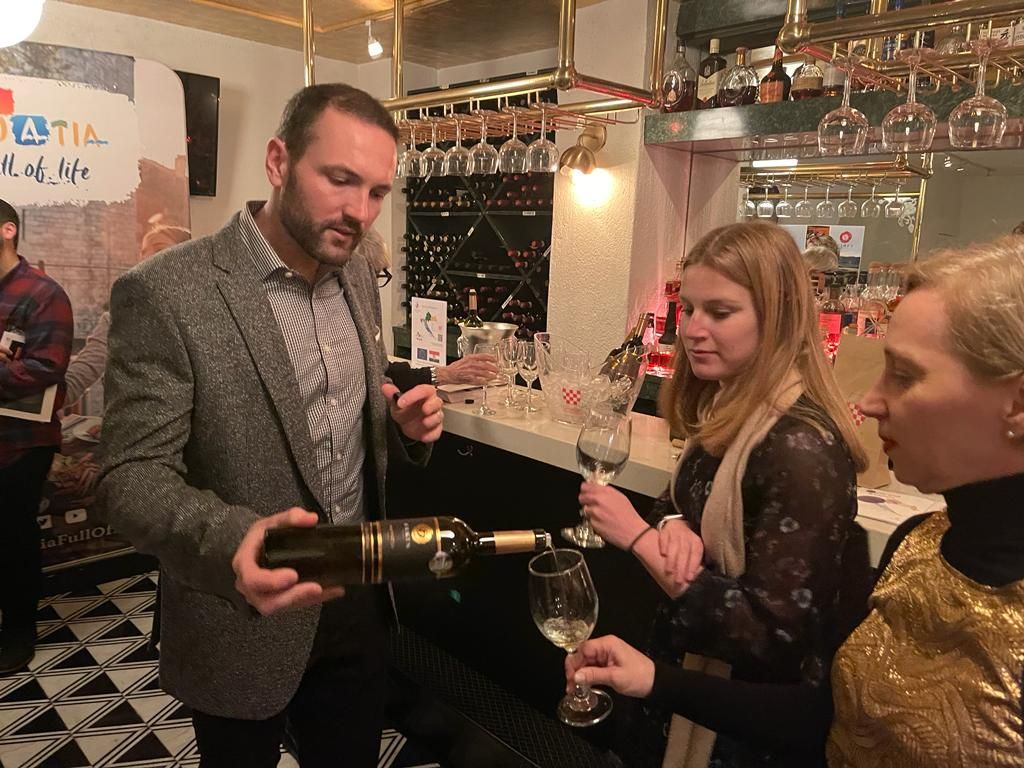
Mrs. Leila Krešić-Jurić, Director for North America of the Croatian Tourist Board, also supported the Fakin family with her attendance, pointing out: "This is the first presentation called Food and Wines of Croatia that we are organizing with the Croatian Premium Wine Imports company in order to present Croatia as a destination with authentic food and autochthonous wine varieties. Namely, apart from the visual presentation, this is what we can best use to evoke the destination and attract American guests. This is because they highly appreciate the quality of food and drinks. The response of journalists and educators about Croatia as a wine destination was excellent, with more than 20 representatives of the profession and media from New York enjoying Fakin wines."
The owner of the restaurant Villa Berulia, Alexandra Ivanac, also expressed her satisfaction after the successful dinner: "It was a true pleasure for us to host Marko and his wonderful family and present their fantastic wines to our guests. We are always proud and grateful when we can support Croatians and their families. We really want many more successes like this."
Marko presented his fresh Malvazia, fresh Teran, aged Teran Il Primo and Muscat yellow, along with selected gastronomic specialties, at the konoba Vinoteka 46 in Huntington, Long Island, on February 25. Their host and owner of Vinoteka 46, Danijel Pedišić, emphasized on that occasion: "It was such an honor for us to host the Fakin family in our restaurant. Croatian wines are increasingly accepted in the USA, and always especially by the Croatian American community. I believe that the sale of Croatian wines will grow year by year in the USA and that we will have many more events like this with Croatian winemakers."
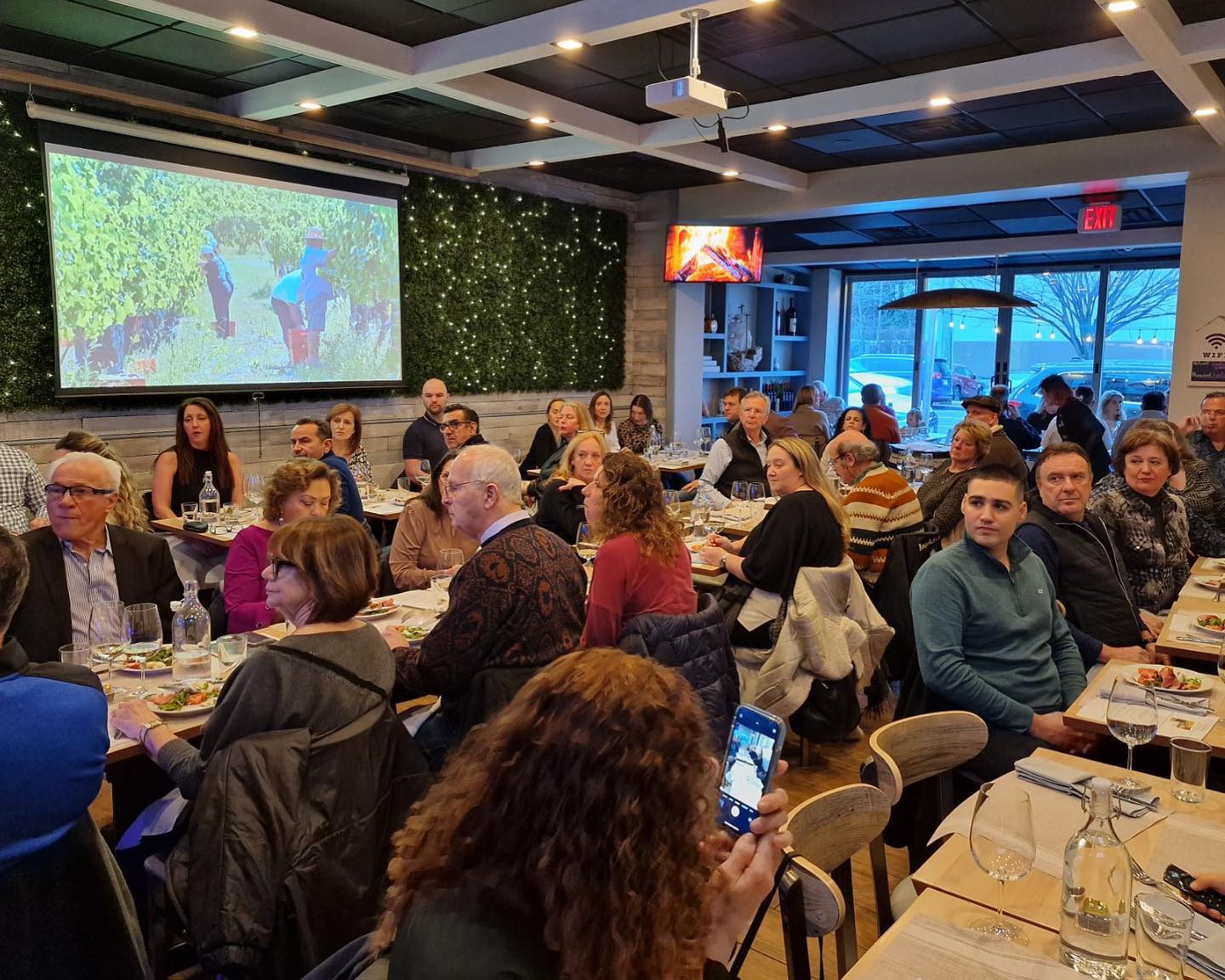
Marko Fakin concluded his trip to New York as a live guest at Croatian Radio New York on February 25. During the broadcast of the Voice of Free Croatia hosted by Petra Pesa, he talked about his winery, top wines and autochthonous varieties he grows, and shared history, stories and traditions of his family.
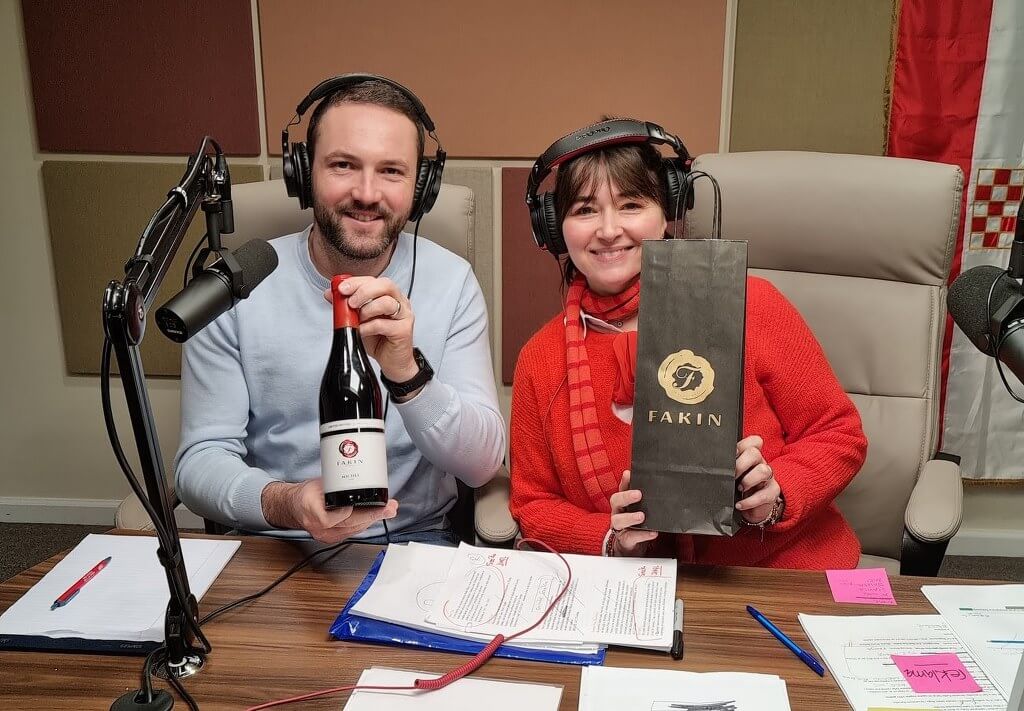
"We are very happy that we had the opportunity to present our wines in New York, to media representatives, sommeliers, our Croats in the USA, and all the wine lovers who came to support us and enjoy socializing, a tasty bite and a delicious drop with us. For organizing wonderful evenings and gatherings, we would like to thank the Istrian Sports Club, the restaurant Villa Berulia, and the konoba Vinoteka 46 for the hospitality they provided. A special and very sincere thanks to the company Croatian Premium Wine Imports headed by Mrs. Mirena Bagur for the exceptional help and cooperation during our trip. "Thank you TZ Istra and Vinistri for your constant support," Marko Fakin commented after his very successful visit to New York.
"In order to be able to create a category of Croatian wines in shops and restaurants, we as importers, winemakers and all wine and tourist institutions, such as HTZ in New York, TZ Istria and Vinistra, with whom we cooperate, need to strategically educate the market about Croatian autochthonous varieties. For this, it is necessary not only top wines such as the different varieties of Malvasia and Terano of the Fakin Winery, but also the knowledge, will and hard work of how to present them, and this is where Marko and Bety Fakin excel with their professionalism and approach," said Mirena Bagur, co-founder of Croatian Premium Wine Imports, Inc., a company that imports and distributes Croatian autochthonous wines in the USA.
The culture of producing top quality Fakin wines is the result of specific Motovun soil, a favorable climate with lots of sun and lots of wind, along with a great knowledge of our own grapes, but also experience, dedication and long-standing family traditions that ensure the top quality of carefully cultivated varieties.
As a winery from Croatia that has won a gold medal at Decanter, the largest and most important world wine competition, for six years in a row, and in addition to being an unmissable place for complete eno-gastro enjoyment, the Fakin winery is surely and resolutely building its way to the top of the domestic and international wine scene.
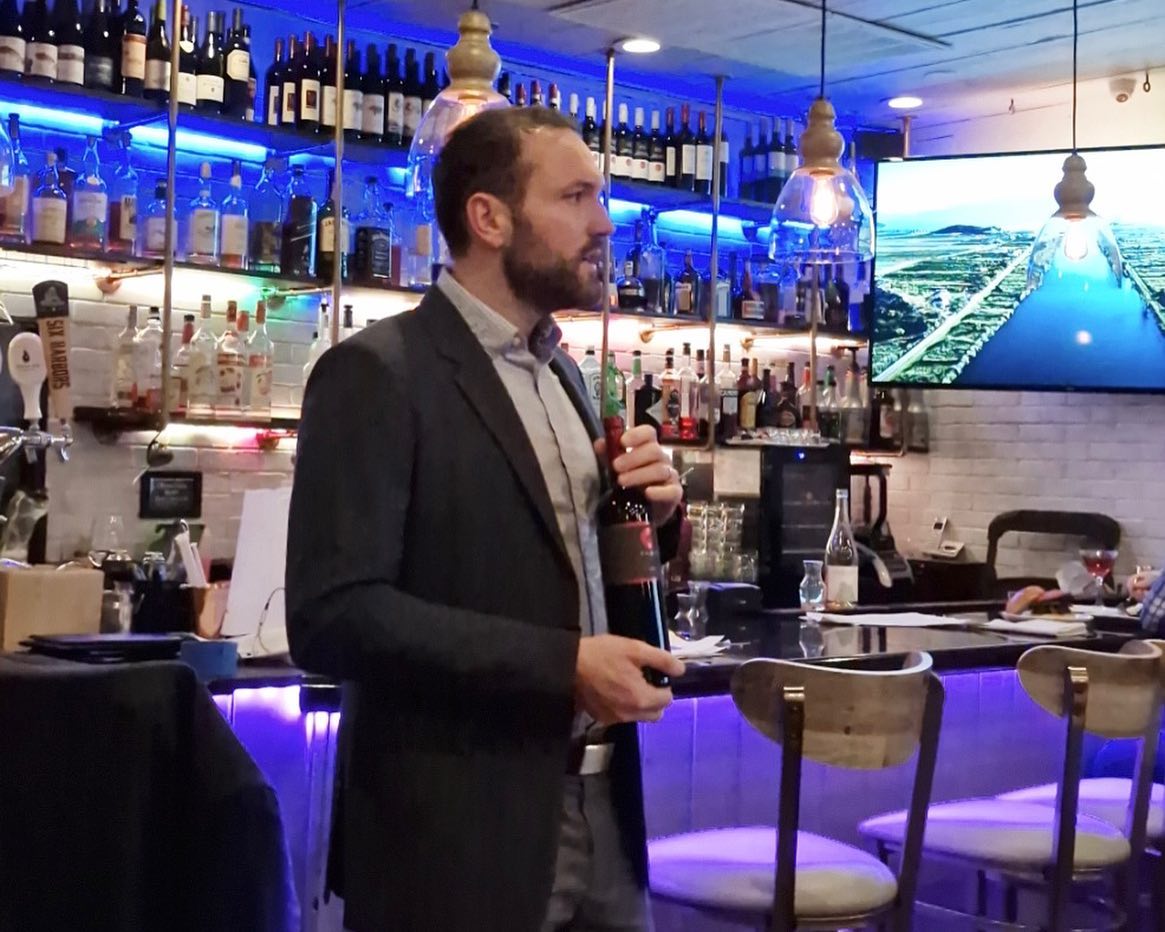
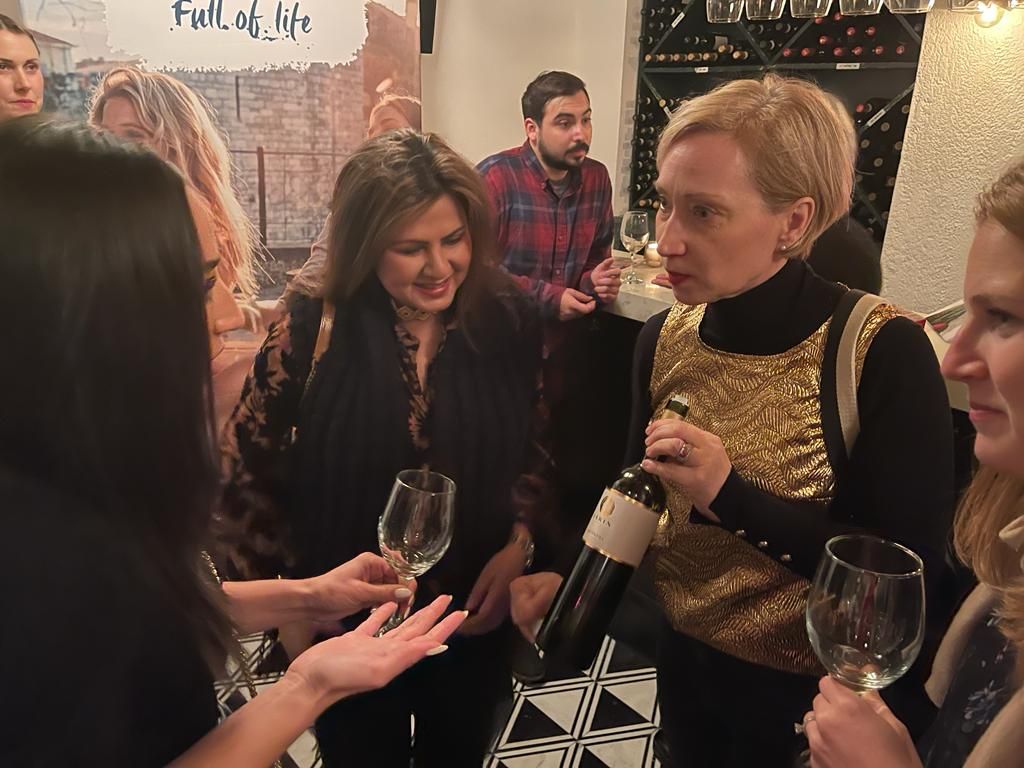
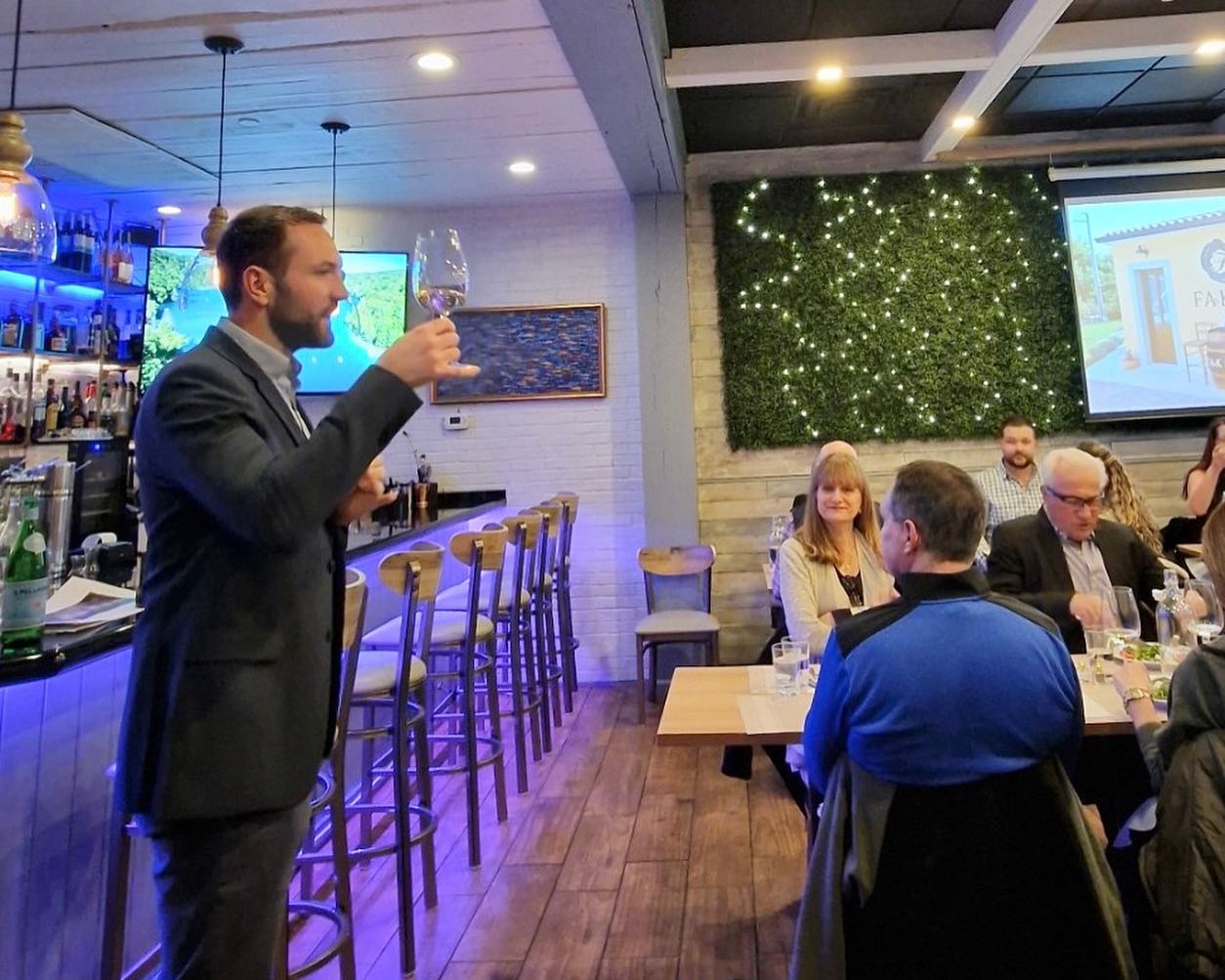
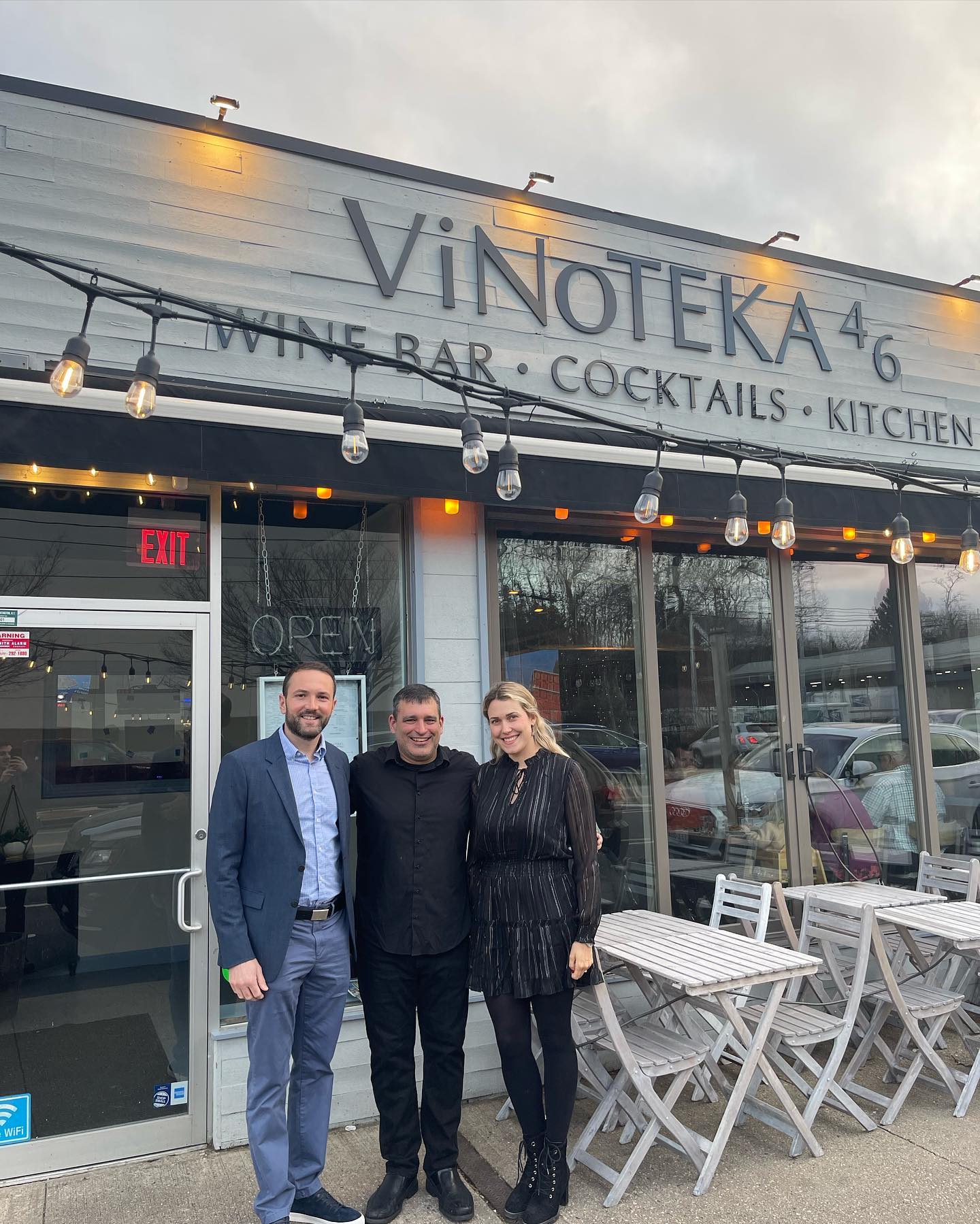
For more, check out our lifestyle section.
Winemaker Marko Fakin, Winner of WOW Wine Awards Grand Prix, Enjoyed Trip to Baranya
August 2, 2019 - The busy Croatian association WOW (Women on Wine) has recently elected the best winemaker of the year according to their exclusively female members, for the 8th time in a row. The girls and women of WOW have their regular monthly gatherings and wine tastings all year long, but their most prominent festival is the legendary Pink Day, dedicated exclusively to rose wine. One would expect that the focus in the group is also solely on rose wines, but they are keen to stress and underline the fact that they are promoting all good wines and moderate drinking. And, of course, they are more than ready to promote and support women winemakers, oenologists, sommeliers, wine merchants…If we don’t count Pink Day, the most important yearly WOW event is their birthday, always celebrated in summer – which is also the award-winning event at the same time.
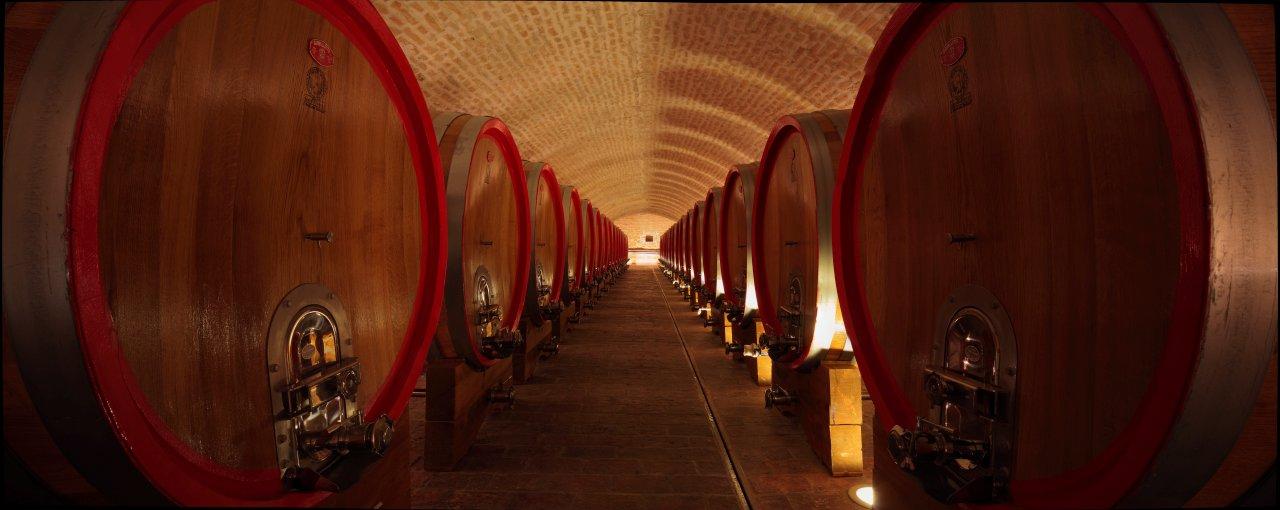
The first step of this ever more relevant national choice is the pre-selection wine list made by an esteemed Croatian sommelier. He/or rather – she, when possible, lists white wines, rose, reds, sparkling and dessert wines, and WOW members have an opportunity to vote for their favourites - from the list. This year the role of the selector was taken by the famous Filip Savić of Noel2 from the newly open Istrian luxury hotel - San Canzian Hotel & Village. The members, then, vote by e-mail – sending a message to all - as to what really agrees with their female palate. The final step is a blind tasting by three female wine connoisseurs. They choose the best from the 12 finalists – in every category and the overall winner – who is awarded the title WOW Grand Prix and the trip to a wine region of the world. This year’s final jury consisted of the sommeliers Karin Rupena Perdec and Ines Matić plus Doris Srpek of the legendary wine shop and wine bar Bornstein.
The sponsor of this year’s trip was Belje, so the designated area for the trip was a visit to Belje in Baranya and over the board to Villány region in Hungary. The winner, Marko Fakin, a young Istrian winemaker, and a rising wine-star who has already been awarded with many Decanter medals, went on a trip accompanied by his wife Bety Prodan Fakin, son Mišel and the president of the association, Sanja Muzaferija. The first stop was Belje with the impressive 650 hectars of vineyards mostly planted with Graševina variety. The hostess of this trip was Belje’s head of marketing Ljiljana Vajda Mlinaček with her all-women associates who were more than welcoming and took the WOW winner all over the company giving him and his party a chance to see interesting things in Baranya of which they are many. The region is characterized by its multiculturalism, the river Danube and the Nature Park Kopački rit, one of Europe's largest marshlands.

One of the more interesting things to see was the production of Baranya kulen as an indigenous delicacy produced in this region. Baranya’s kulen is produced according to the old artisans' recipes for almost one hundred years. The production is sophisticated, as each kulen requires best-quality pork and red paprika. Once the meat is stuffed by hand into the natural casing, the so-called „katica“, the kulen is smoked on natural beechwood smoke for several days and then goes through a maturing process for a minimum of three months. It is because of the traditional recipe and the best pieces of meat used for its production that Baranya’s kulen has become a delicacy which hardly any cured meat lover could resist. It bears the EU geographic origin stamp as a guarantee of its high quality, traditional recipe and traditional way of production.
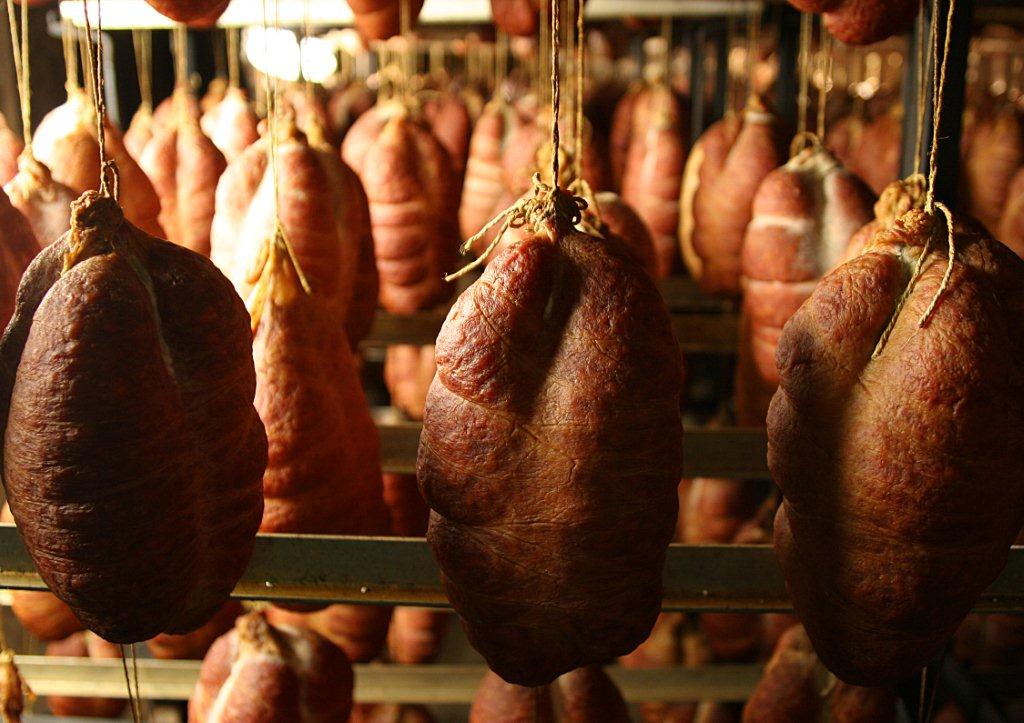
However, for the youngest member of this party, Mišel Fakin (5), Kopački rit Nature Park was probably the most interesting part of the trip, although he, as the winemaker's son, actually likes cellars and barrels, too. The greenest waters and forests in the whole of Slavonia are to be found in Kopački rit. The Park covers the wetland area around the confluence of Drava and Danube rivers, near Osijek. Covering a total of 238 hectares it is one of the largest natural wetlands in Europe and as such has been recommended for inclusion in the UNESCO List of Natural Heritage. Large herds of deer are practically a trademark of Kopački rit, even though herds of wild boar are just as large. There are other mammals in the Park, but far more numerous are the birds, a total of 300 different species, of which the most important are the very rare and protected species: white-tailed eagle and black stork. The best way, however, to tour the Park is on excursion boats which are able to reach even the shallow, swampy backwaters and that’s exactly what the winning party has done.
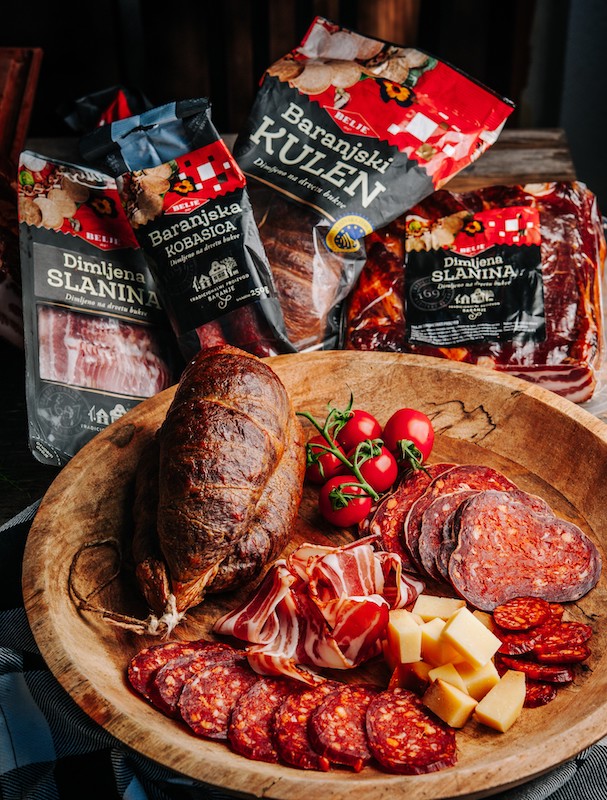
The main focus of the trip was the visit of Hungarian wineries in the nearby Villány region, maybe the most well-known wine region of the country. The winemaking tradition here can be traced back to the ancient Romans, and winemaking has always played an important role in the region, regardless of the nationality of its residents. Romans, Hungarians, Germans and Serbs have all contributed with new varieties, new techniques and technologies, expanding the skills and traditions of the centuries. This rich winemaking tradition peaked in the 18th century, when Serbs brought in the Kadarka variety which proved to be popular, and a little later, when ethnic German settlers brought in their famous work ethic, accuracy and also the Portugieser variety. After the transition to the market economy in Hungary, the wineries in Villány played a pioneering role in establishing Hungarian wine culture.
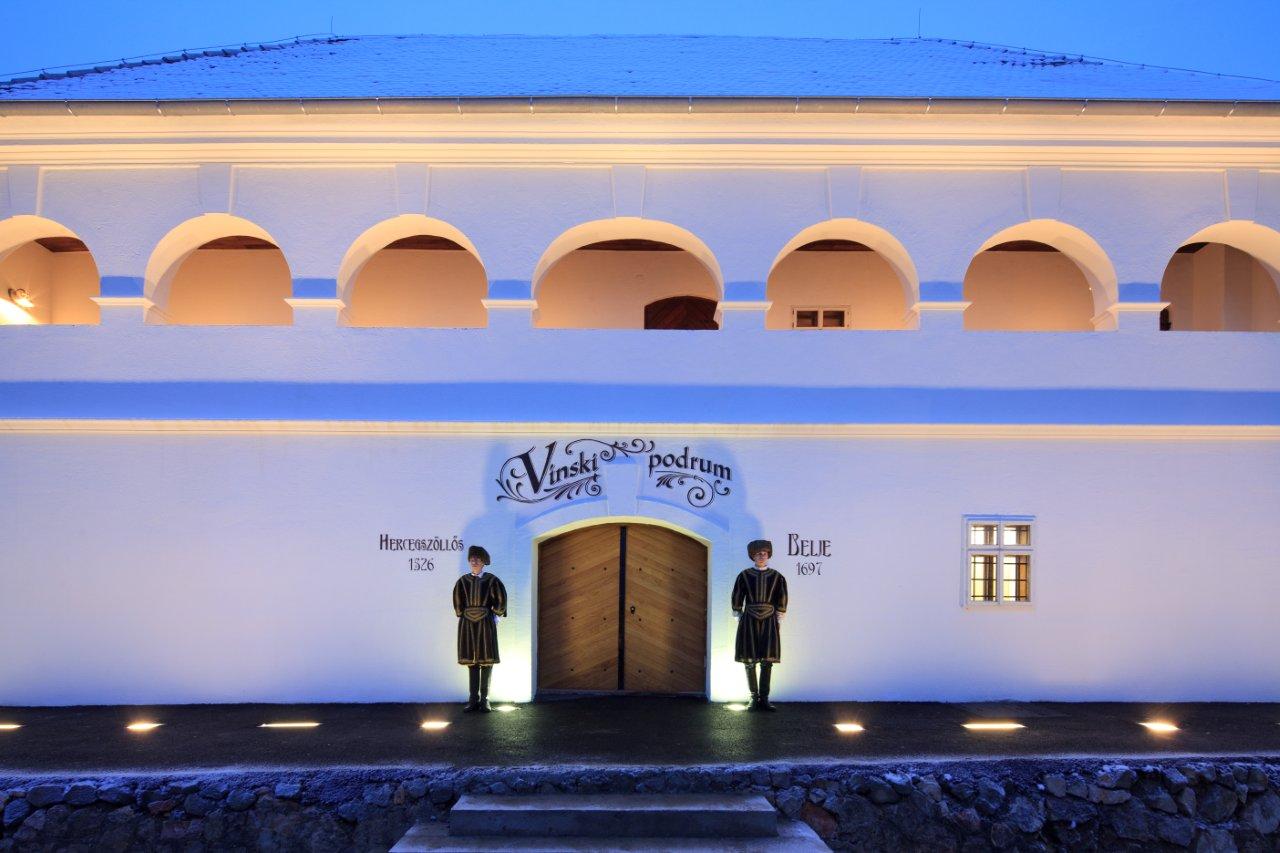
The total area of Hungary’s most southern wine region with a sub-mediterranean climate does not exceed 4500 hectares, and only 2500 hectares are used for the growing vines. Winemakers Tiffán, Gere, Polgár and Bock were subsequently awarded the Winemaker of the Year titles in the 1990s. Although the Villány terroir provides the best results with world varieties and the most prominent wines are made from these grapes, a true Villány winery has to offer Portugieser to its guests as well. Marko Fakin and his party have paid a visit to three prominent wineries: Gere, Bock, and Sauska. Attila Gere is one of the most prominent winemakers and has a very wide range of wines: from fresh whites to the powerful reds like his label Grand vin Cabernet Sauvignon or, tzpicaly, Cabernet Franc. Croatian “team” has tasted seven of his wines of which Marko Fakin preferred Solus label.

The next stop was a visit to the Bock winery, one of the biggest in Villány with the production of one million bottles a year. Interestingly, most of the production is being sold at home, in Hungary, although he exports widely, partly in Denmark where he owns a bistro.
Since the Villány region also plays a pioneering role in gastronomy and related services in Hungary – the last visit was to Sauska winery and fine cuisine restaurant. A beautifully refurbished place with great food and equally impressive wines was a pure delight for the end of the trip. Marko Fakin loved the wines but his personal favourite was the wines from Sauska’s other winery, the one in Tokay.
To read more about lifestyle in Croatia, follow TCN's dedicated page.



